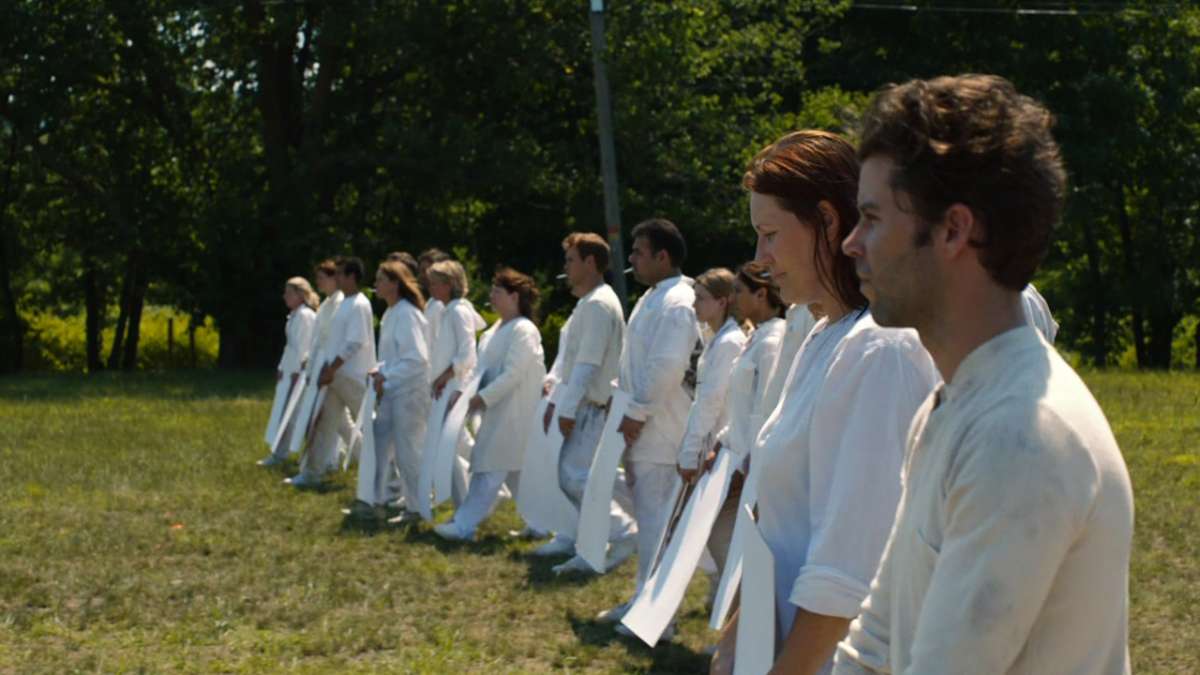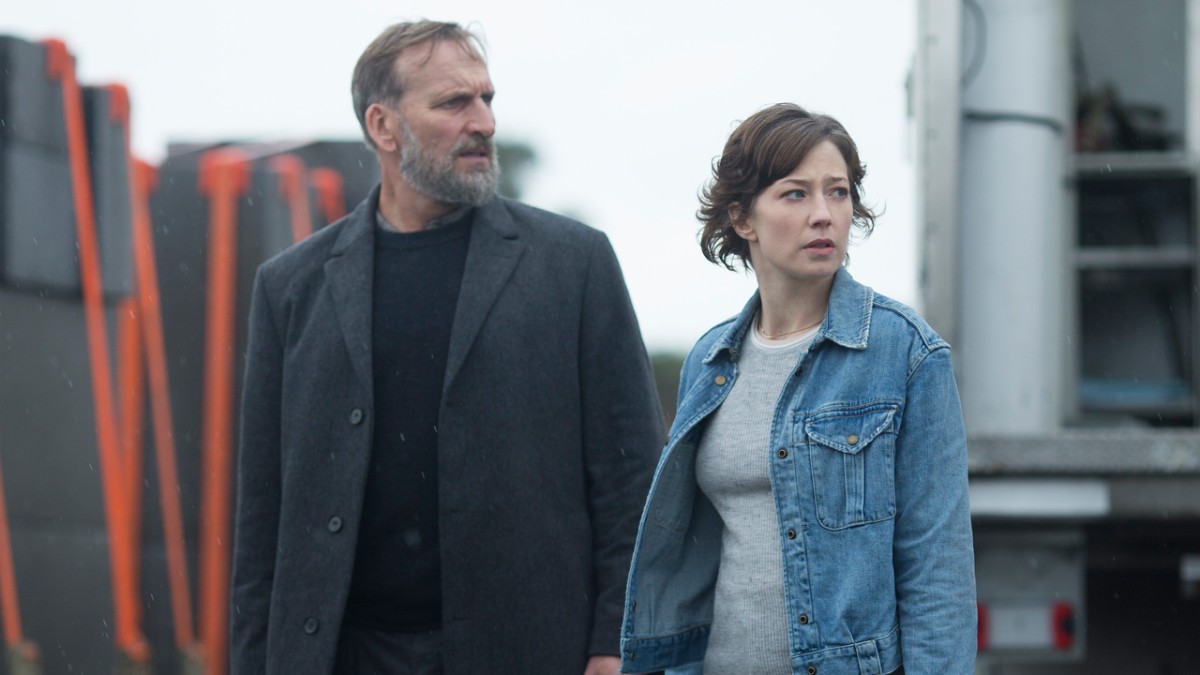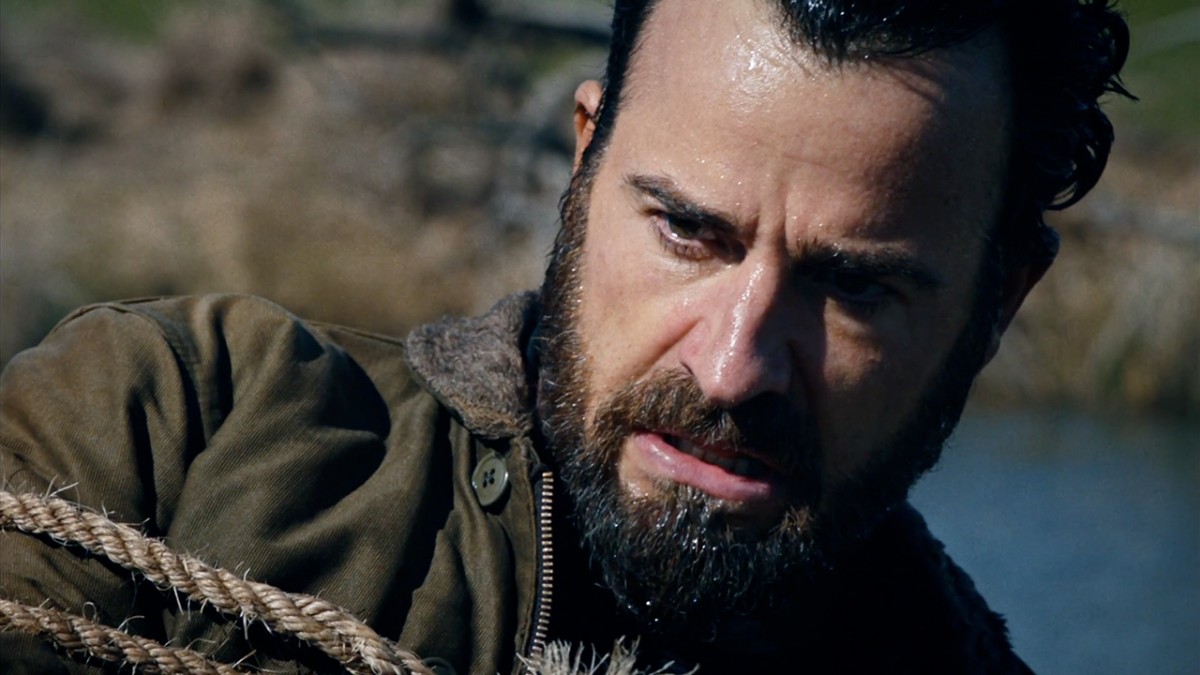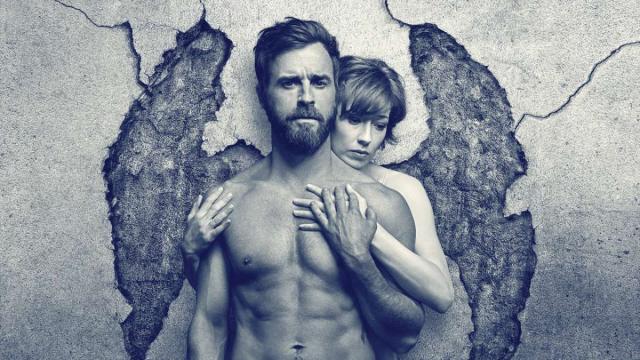Last week I was on vacation, which was a great time to catch up on some TV. Kotaku‘s editor-in-chief Stephen recommended The Leftovers to me, an HBO show that finished a three season run last summer. I didn’t expect to like the show as much as I did, and now all I want to do is talk about it. Jason Schreier and I sat down to do just that.
Note: The Leftovers is available in Australia through Foxtel Now, or for download through Google Play, PlayStation Video or the Microsoft Store.

Riley MacLeod: Hi Jason! Stephen told me I would like The Leftovers, probably because it’s about cults. I wasn’t so convinced, but I thought I’d give it a try. I ended up binge-watching the entire series over several very late nights the other week. I really liked it! I was excited to learn that you like it a whole lot too!
Jason Schreier: I also watched it recently, just a few months ago, and then happened to have also binge-watched the entire series last week with my fiance, who was watching for the first time. It’s tremendous. It’s such a good show, which we’ll get into shortly, but first of all: Did you watch LOST?
Riley: I did not.
Jason: Oh man, you missed out on a genuine television phenomenon. The experience of watching LOST live was very different than it would be watching it all on DVD or streaming, but it was really something special. The first season was transcendent television.
Problem was, showrunner Damon Lindelof and crew were clearly winging it, making up mysteries as they went along with no real end in sight, which is why the last couple of seasons turned out to be disastrous.
Lindelof then went on to do a few movies and eventually began running The Leftovers, which he said from the get-go would be a show about ambiguity. Rather than setting up an endless cavalcade of mysteries and then teasing them out over years and years, he just said, “Hey, we’re not telling you shit.” Which is one of the many reasons The Leftovers is so great.
Riley: I like that the show didn’t really concern itself with why everyone disappeared, instead focusing on how the characters lived with that event and the meaning they tried to create following it. All the ambiguity meant the show had to focus on its characters a lot, and that made it a very human story that I found really moving.
Jason: Exactly, it wasn’t a genre show about people disappearing and aliens and shit, it was a show about all of the weird, fucked-up things that we do to confront grief and loss. Well, at least until it gets into the weird genre stuff. But that comes later. Were you hooked right away or did you find the first season slow?
Riley: I was hooked from the first episode. I was immediately into the Guilty Remnant, the show’s main cult. I was also really into Kevin’s character and the idea that he was losing his family even though none of them disappeared in the Sudden Departure. It was such a powerful contrast to Nora, who lost everyone. Kevin faces so much loss in such an intense but relatable way, even though it’s a different kind of loss than the loss the show is ostensibly about. What about you?
Jason: It’s awesome that you were into the Guilty Remnant – did you know that they’re the most controversial thing about the show? People hate the Guilty Remnant.
Riley: I’ll admit that after finishing the show I read the book, which explores the Guilty Remnant a bit more. I liked how weird they were. As a sort of ex-smoker who used to sneak away on religious retreats for a cigarette, I liked right away that they had a whole religion around smoking.
Jason: Hahaha, everyone kept asking why they smoked. It really made people angry. In the penultimate episode, when Kevin is in the afterlife for the final time, he makes a comment like “and then the party stopped smoking, because it was stupid,” which is kind of a reference to how people reacted to that.
But I’m glad you dug them! I did too. I like how the show explores them later, and how clear it is that this cult exists because of the depression that hit so many people in The Leftovers‘ world after they realised that millions of people were just gone and the ones left behind would never, ever know how, why, or where they went.

The LeftoversScreenshot: HBO
Riley: I loved all the different cults that sprung up that tried to answer that in different ways, and the conflicts the cults had with each other. And then side industries too — I loved the episode “Guest,” where Nora goes to that conference, and how it’s something that’s so mundane – a boring work thing with lots of panels and merch — but how it’s also something that could only exist in the show’s world.
Jason: The episode that really hooked me was actually the third one of the first season, where Matt Jamison has to raise over $US135,000 ($179,508) to save his church. He goes through this sequence of horrible, Job-like events (a trend that would continue throughout the series).
I loved it when the show would focus on specific characters and tell focused stories about them. And yeah, “Guest” was just as good, in large part because of Carrie Coon (the actress who plays Nora). It’s a travesty that she never won an Emmy for this role.
Riley: She was amazing. The episodes that look at single characters are great! It was nice to see something humanize Matt, who starts off as kind of a real scumbag with his paper digging up everyone’s dirt.
Jason: Everyone kind of starts off as scumbags, don’t they? Jill is annoying and mopey, and Kevin is shooting dogs. It’s clear that these are all broken people, and that’s what makes them so compelling. Instead of asking where the Departed went or how it happened, we’re asking why these people are so broken and wondering if they will ever be fixed. (Spoilers: nope!)
Riley: It’s always hard for me to get behind male characters who sort of blow up their lives and everything around them because they don’t know how to deal with their feelings. Like the Kevin we meet in “The Garveys At Their Best” who’s all unfulfilled in his marriage – romanticising or being asked to empathise with the consequences of characters handling everyday feelings badly is always a chore to me. Like, just be a decent human, bro! But I really, really liked Kevin, especially as he grows and changes over the series.
I wasn’t quite sold on, say, his fear of intimacy, but I liked his struggles with mental health and especially – maybe despite myself – the afterlife episodes in particular and the person they made him into.
Jason: So as someone with a heavy religious background, what did you make of all the allegories and references, especially in season three? Where we got to meet God Himself!
Riley: I loved that! And I loved how Matt sort of doesn’t believe in him and then does. (I don’t think he was really God, but the idea that God should get eaten by a lion is pretty great.) Overall I was less into the weirder secret meaning stuff (though I did watch a ton of YouTube videos unpacking all its hidden references) and more into just all these religions grappling with what it would mean for The Rapture to happen and for them to be right, or wrong, or whatever.
The Rapture is pretty much squarely the property of religion, so that’s the only way to make meaning out of it, and when religions just can’t, what happens next?

The LeftoversScreenshot: HBO
Jason: That’s the main reason Matt is making those posters, isn’t it? To prove to everyone (mostly himself) that it couldn’t have been The Rapture because of how many bad people went?
The idea of The Rapture happening but it not actually being The Rapture that theologians anticipated is really interesting.
Riley: I love that this absurd thing is just completely mundane. The third season delves into its mechanisms the most with all the allegories and everything. In getting a little more sci-fi than previous seasons it lost me a bit more than the more grounded stuff. Though the end certainly brings everything back down to earth – sort of – with Kevin and Nora just talking in the kitchen.
Jason: Did it get sci-fi, though? It felt to me much like the first two seasons, in that it was all about how these people are dealing with depression and grief. It deceived the viewer into thinking we were watching this supernatural journey, only for it all to turn out to be the delusions of an old man and a priest. Kevin Senior and Matt had this grand belief that they were Special, that they had Purpose, and it all turned out to be nothing.
There’s a great moment where Kevin Senior is on the roof with his son and is just like, “I’m not ready to come down yet.” Which kind of sums up the whole show.
Riley: I wasn’t as invested in Kevin Senior and Matt’s big eschatology, or the whole plot with Nora and the machine. But the end of the series takes the wind out of all that and sort of slams it back to earth. That said, I like how the most unbelievable stuff, like Kevin being able to come back from the dead, is never really explained.
Jason: He’s Jesus, obviously!

The LeftoversScreenshot: HBO
Riley: Naw, I think he’s just some dude. Or, I like that idea, anyway.
The show does walk the line really well between sort of realism and the more fantastic stuff. Like we said earlier, it ends up being a hugely human show, instead of all the other things it could have been.
Jason: I think all the afterlife segments are entirely about Kevin battling his demons, first externally in the form of Patty Levin, and eventually internally in the form of his identical twin brother. (“We really fucked up with Nora” is such a heart-wrenching moment.)
It’s sci-fi-ish, sure, but it also feels very real. It’s very similar to (and must have been heavily influenced by) The Sopranos‘ coma sequence. Just like Tony Soprano, Kevin Garvey is someone who needs to confront his inner flaws and make some tough decisions about them. You’re right: It is a hugely human show, which is why it’s so great.
Of course, the beautiful cinematography, incredible score, and brilliant performances all help, too.
Riley: It’s so well-done, and the music is great. I’ve rewatched the “Homeward Bound” karaoke scene, like, nightly. I read an interview with Damon Lindelof that said that they wanted each season to end with “very simple ideas” as conveyed through the everyday final statements. which it does.
“Look what I found.” You’re home.” “You’re here.” That’s not something I would have picked up on, but once it was pointed out to me, I think it really sums up the show and what makes it so great.
Jason: That’s a very good summary! Part of me wishes that The Leftovers was still airing, but also, it ended in the most perfect way and I really don’t want anyone to touch it again. I’m just excited to see whatever Lindelof does next. Also, you’ve gotta watch LOST!
Riley: I don’t want more The Leftovers, I just want to go back in time and watch it all over again. And it did make me curious about LOST, though that’s a lot more late nights of binge-watching than I should responsibly undertake.
Jason: Responsibility is overrated.

Comments